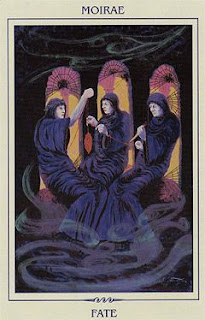At this point, some of my characters were half crazed. The voices accumulated and grew louder, demanding action and release. Xavi and Emilio jumped in the fray with Matthew, and as we all know, men's voices, especially deep voices can drown just about any other noise, and I thought I would lose my mind.
This went back and forth for several days until we all agreed to a compromise. A truce of sorts. I could advance in parts of the story that took place in the US while I completed what I believed was the key component of the war aspect. The final touch, the icing on the cake, the last decoration on the Christmas tree: personal experiences. A writer can research a past era, maybe speak with experts who studied the field diligently, but nothing beats interviewing folks who lived, breathed, and ate in it.
As it turned out, I have the unbelievable fortune of living two houses away from Mr. José Meléndez-Pérez. For those who don't know, Mr. Meléndez-Pérez is a true national hero. Instinct, written by Michael Smerconish accounts how on August 04, 2001 Mr. Meléndez-Pérez -- a US immigration officer stationed at Orlando International Airport -- refused Mohammed Al-Qahtani entry into the US. Despite incredible pressure, Mr. Melendez-Perez remained steadfast in his certainty. Al-Qahtani was coming to the US to do harm. Some folks may now remember, the aircraft that went down in Pennsylvania had four hijackers. One short thanks to Meléndez-Pérez. If they'd had a full complement of terrorists on board, who knows which other horrors they might have perpetrated. Members of the 9/11 commission, such as Richard Ben-Veniste speculate the Capitol might've been their target.
For those who'd like to learn more about Mr. Meléndez-Pérez, heroic resistance to political and diplomatic pressure, Instinct can be purchased through your regular book retailers. This is a fantastic article as well: The Pulse: Hero again.
Of course I wanted Mr. Meléndez-Pérez' perspective, and he was kind enough to grant me an interview about a period, which he called, "one of the most difficult times in my life, Vietnam." He served two tour duties, one in1965-1966 and in 1969-1970.
How lucky can a girl get?!! Even though Destiny's Plan's scenes take place in 1967-1968 and Mr. Mélendez-Pérez did not serve in Special Forces, his personal experiences are extremely relevant and right on point. I can watch Platoon, a remarkable movie based on Oliver Stone's recollection a million times, but it's not the same as when the man you are interviewing tells you,
"The nights in the jungle were so dark, I couldn't see my hand." And then, he'd go on to explain how.
"When the monsoons came, we thought we would drown. We were wet, always wet, foot rot the most common ailment, mosquitoes our most unrelenting pests."
I have several other comments in my "book-bible" from the conversation, but there is no point in repeating the misery. It's enough to say there is no such thing as a little inferno. Hell is hell. And he lived it, breathed it, and suffered it. Matthew and Brian were bound for Gehenna.
Destiny's Plan is not a book about war, I've said that before. But when war is your background music, the constant noise of an era, and you wish to call yourself a passable writer, you just can't ignore it like our nation did to these men when they came home. When they returned PTSD'd to the max, suffering of untold diseases, exposed to life-altering chemicals and seeking a comfort that was nowhere to be found.
That's why the book is dedicated to them, maybe a little late in coming, but better late than never. On that note, may I express my sincerest gratitude for the unmeasurable sacrifice.





